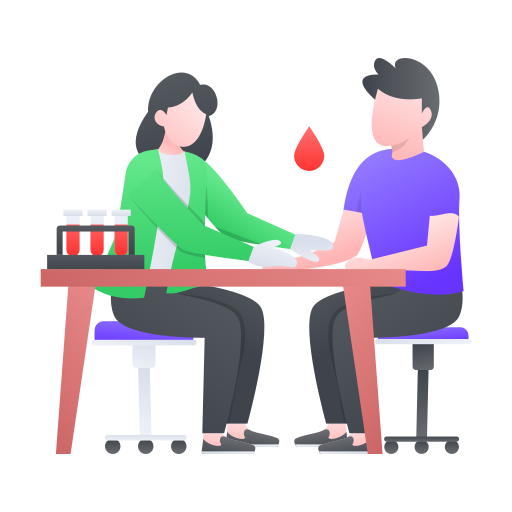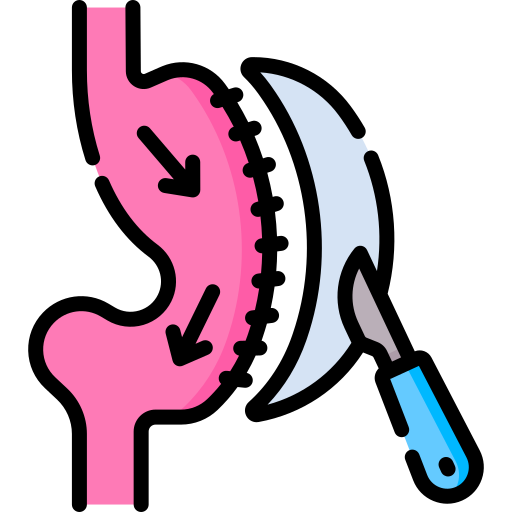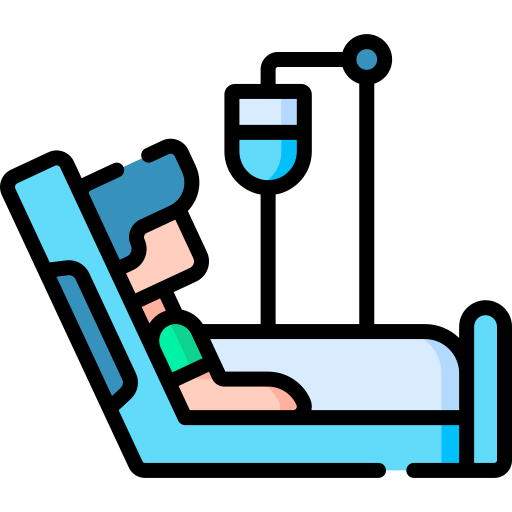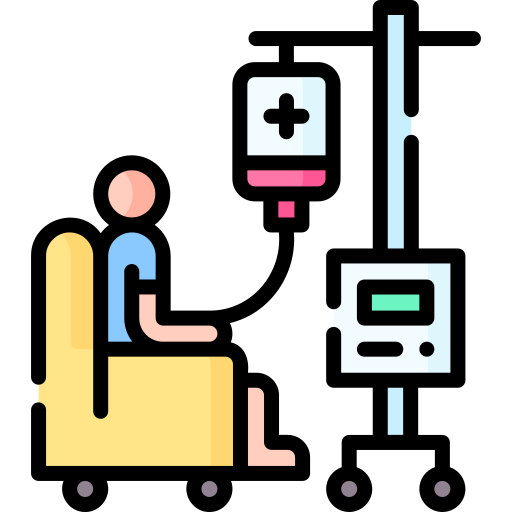Stomach Cancer Surgery in Ahmedabad
Understanding Stomach Cancer and the Path to Treatment
What We Do Cure Stomach Cancer

Comprehensive Initial Consultation
The journey begins with a detailed consultation where we discuss your medical history, symptoms, and any prior diagnostic tests. It allows me to form a complete picture of your condition.

Individual Treatment Plan
Based on your diagnosis, I create a custom treatment plan that may include surgery, chemotherapy, or a combination of treatments, depending on the stage and spread of the cancer.

Advanced Surgical Care
Surgery has been the base of treatment for stomach cancer, and my focus is on removing the tumor while preserving as much healthy tissue as possible.

Holistic Support
Our care doesn’t stop at surgery. From nutritional guidance to recovery planning, we provide the support you need to regain your strength and health.
How We Diagnose Stomach Cancer

Endoscopy
A flexible tube with a camera is passed down the throat into the stomach, allowing us to view the inside of the stomach lining and identify any abnormal growths.

Biopsy
During the endoscopy, I may take a small sample of tissue from the stomach lining to examine it under a microscope. It confirms whether cancer is present and, if so, what type.

Imaging Tests
In some cases, we suggest CT scans, MRIs, or PET scans to determine if the cancer has spread to other parts of the abdomen or beyond. These images help us plan surgery with greater precision.

The Surgical Process
In many cases, surgery is the most effective way to treat stomach cancer. The type of surgery depends on the location and stage of the tumor. I specialize in several surgical techniques

Partial Gastrectomy
For localized cancers, I perform a partial gastrectomy, removing only the affected part of the stomach. These procedure preserves as much of the stomach as possible while ensuring that the cancer is completely removed.

Total Gastrectomy
In more advanced cases, a total gastrectomy may be necessary, where we remove the entire stomach. In these cases, the esophagus is connected directly to the small intestine, allowing the patient to continue digesting food.

Laparoscopic Surgery
Whenever possible, I opt for minimally invasive laparoscopic techniques. These procedures use smaller incisions, which result in quicker recovery times and less post-operative discomfort.
Our on-going treatment process

Pre-Operative Assessment
It includes a full range of blood tests, imaging scans, and discussions about your current health. We also offer nutritional counseling, as maintaining your health pre-surgery is important for a successful recovery.

Surgery
On the day of the operation, my team and I will perform the surgery under general anesthesia. Our goal is to remove the cancerous tissue while minimizing disruption to healthy areas. It includes removing nearby lymph nodes if the cancer has spread.

Post-Surgery Care and Recovery
Recovery after stomach cancer surgery is a gradual process, and I will be with you every step of the way:

Hospital Stay
After surgery, most patients stay in the hospital for a few days to a week, depending on the extent of the procedure. During this time, we monitor your recovery closely, managing any discomfort and ensuring that your body begins to heal.

Nutritional Support
Following stomach surgery, it’s common for patients to have some difficulty eating, especially larger meals. Our nutritional advice is patient and treatment oriented that helps to adjust, focus on small, frequent meals that are easier to digest.

Chemotherapy
In some cases, additional treatments, such as chemotherapy, may be necessary after surgery. It is typically to target any remaining cancer cells and reduce the risk of recurrence.
We follow a strict Pre- and Post-Diagnoses
Phase - Pre-Surgery
- Staging TestsThese tests determine the stage of your cancer, whether it has spread, and plan treatments.
- Diet and Health ManagementA high-protein, low-fat diet is recommended to help your body withstand the treatment.
Phase - Post-Surgery
- Physical Weakness and Weight LossCommon to experience weight loss and fatigue, but this improves as the body adjusts.
- Regular MonitoringFollow-up appointments to check progress, ensure cancer hasn't returned, and adjust care.
Expert Care with Dr. Kaushal Anand
-
Advanced Techniques
Whether it’s laparoscopic surgery or complex gastrectomies, I stay at the forefront of surgical innovations to ensure the best outcomes for my patients. -
Patient-Centric Care
Every patient deserves not just medical treatment but also emotional support. My team and I are here to answer your questions, address your concerns, and ensure that you feel informed and empowered throughout your treatment -
Holistic Care Plan
From diagnosis to post-operative recovery, our care is holistic. We focus on the physical, nutritional, and psychological aspects of your journey, ensuring that every patient receives the full spectrum of care.
Take the Initial Step
FAQs
Yes, stomach cancer can be linked to genetic factors, though the majority of cases are sporadic and unrelated to family genetics. However, 3-5% of patients may have a genetic predisposition. Therefore, I recommend that all patients undergo genetic testing, as it can help identify hereditary stomach or gastric cancer, allowing us to screen and protect family members from the disease.
The key risk factors for stomach cancer include tobacco use, smoking, long-standing H. pylori infection, high salt intake, and exposure to food preservatives or pesticides. Patients should minimize these risk factors to reduce their chances of developing the disease.
Yes, when detected early, stomach cancer is highly curable. In the case of very early stages, such as carcinoma in situ, the disease can often be treated using only endoscopic therapy. Early diagnosis is critical for successful treatment.
Yes, we are fully equipped with state-of-the-art technology and modern operating theaters to deliver safe and effective surgical treatment. Additionally, we have an advanced medical oncology department, allowing us to provide chemotherapy either before or after surgery, depending on the patient’s specific needs.
Yes, many stomach cancer surgeries are now performed using minimally invasive methods, particularly laparoscopic techniques. It promotes faster recovery, minimizes scarring, and helps patients regain their normal quality of life more quickly. We also follow ERAS (Early Recovery After Surgery) protocols, which optimize the patient’s condition before surgery, that ensures a smoother and faster recovery post-operation.

